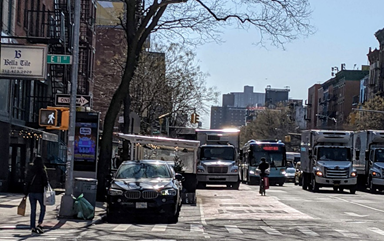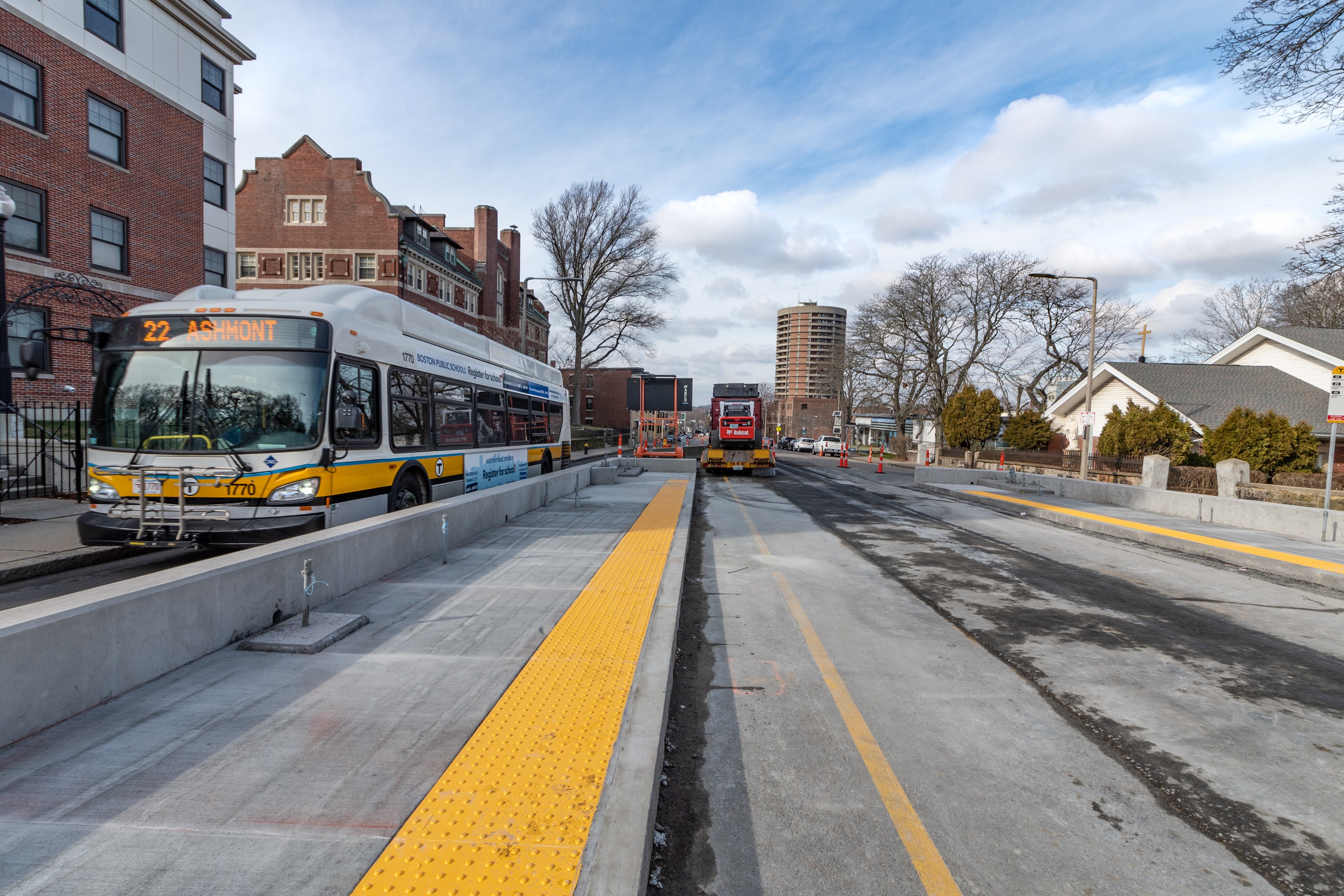Oh, I totally agree with you, to be clear. Crossing the street
shouldn't be a meaningful struggle for pedestrians, and the sidewalk
shouldn't double as an overcrowded waiting area. My point is that -- especially when bus lanes are implemented as an incremental improvement -- those concerns still likely are factors that go into the decision to build curbside rather than center-running bus lanes. (Particularly since curbside bus lanes are certainly going to be faster to implement than the more-structural changes that are needed to decenter automobiles; bus lanes can be a 5-month project, but decentering cars is more like 5 years, if that.)
What I would've liked in the article is essentially the inclusion of your post here: acknowledging these as reasons, but also unpacking why they don't necessarily hold up to scrutiny.
I mean, this is also just a general bugbear of mine with Transit Discourse™. Case in point:
So why do we keep building them? Two reasons:
1. They are not really dedicated. They seemingly provide dedicated space for buses but, with a wink and a nod, they allow other vehicles in too. Politically, it looks good to give space to buses and yet nothing has truly been taken away from cars.
2. They are cheap and quick. They only require paint and some signs and can be put in quickly. This is no small thing as it can allow politicians to claim measurable success (something like, “I fulfilled my promise of creating 100 miles of new bus lanes since I was elected”). But is it true success if the bus lanes are not particularly effective?
These are wildly specious conclusions to present, which is especially jarring given how focused the rest of the article is -- a disciplined focus on evidence and data which suddenly goes out the window. Ironically, I think the author could've excluded this section altogether, and still have a perfectly cogent article; trying to diagnose why curbside lanes keep getting built is really secondary to the primary argument of "curbside bus lanes are ineffective; here's why".
The impulse to blame the Transit Problem Du Jour on the vague claim that "Politicians don't really care about the problem" hampers the debate and clouds productive discussion. Yes, obviously sometimes the politicians really don't care, but also sometimes you've got dedicated civil servants who are trying their best to work with what they've got. These are complicated problems, and I don't thinking painting an unnuanced picture does anyone any good.
/rant
edited to fix typos

 reorientations.medium.com
reorientations.medium.com

 reorientations.medium.com
reorientations.medium.com

